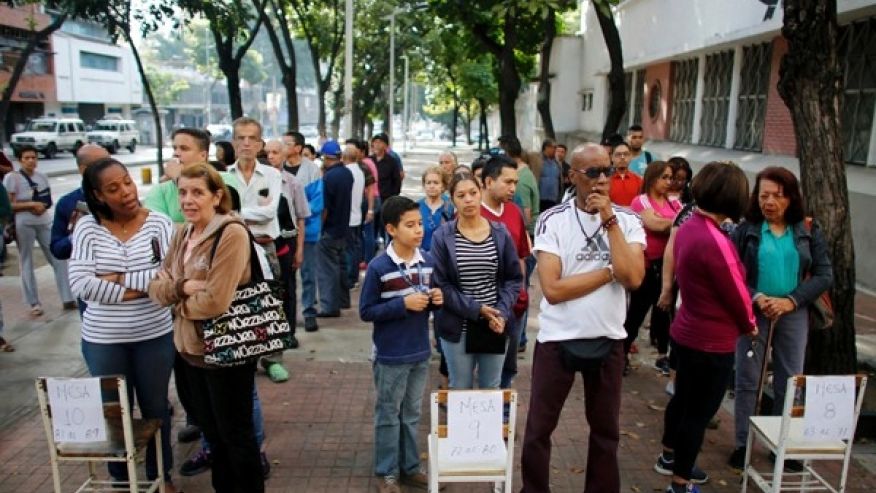Venezuela votes for constituent assembly
July 31, 2017 | Expert Insights

On July 30th, Venezuela held an election to institute a controversial new constituent assembly.
The country witnessed multiple protests and the violence which broke out left at least 10 dead.
Background
Venezuela has one of the largest proven oil deposits in the world but many of its citizens live in abject poverty. The former President, Hugo Chavez had poured billions of dollars in social programs and thus, was popular among the people. However, upon his death his successor, Nicolar Maduro, has struggled to maintain economic and political stability in the country. Since 2013, there has been a rise in inflation and dearth of basic goods including food. A drop in the oil prices has further hit the economy.
From 2014, there have been recurrent protests. Detractors have blamed the current economic policies for the crisis. People are also disillusioned by the high level of urban violence prevalent. The protests have increased exponentially in 2017 with over a hundred people being killed in violence outbreaks.
Analysis
In March 2017, Venezuela’s Supreme Court took over legislative powers from the National Assembly. The opposition called it a coup. The president, Nicolás Maduro Moros, announced that he wants to re-write the country’s constitution. He has called a vote on July 30, 2017, to create a super-legislature known as a Constituent Assembly.
The opposition led by politician, Julio Borges, has deemed this a blow to democracy. The Assembly will have the power to re-write the country’s 1999 constitution. A number of countries including the US have condemned the vote for the assembly. The US has threatened sanctions against the Venezuelan government. Colombia, Mexico, Canada and Argentina have also refused to accept the legitimacy of the vote.
The demands by the opposition includes:
1) Maduro stepping down from office.
2) The cancellation of constitutional reforms
3) Fresh elections to elect a new leader.
According to the Venezuelan government, 8 million people are said to have voted on July 30. Opposition has noted that these numbers have been doctored and that only 2-3 million voted. Nevertheless, the government has claimed victory over the process.
The protests left 10 dead.
Assessment
Our assessment is that Maduro has not been able to inspire the Chavistas, the name given to the followers of the United Socialist Party that was headed by the late President Hugo Chavez.
It is possible that Maduro can use his new powers to claim de-facto dictatorship. As thousands flee from the country amidst violence and starvation, Latin American nations must intervene to ensure the safety of the country’s citizens.








Comments